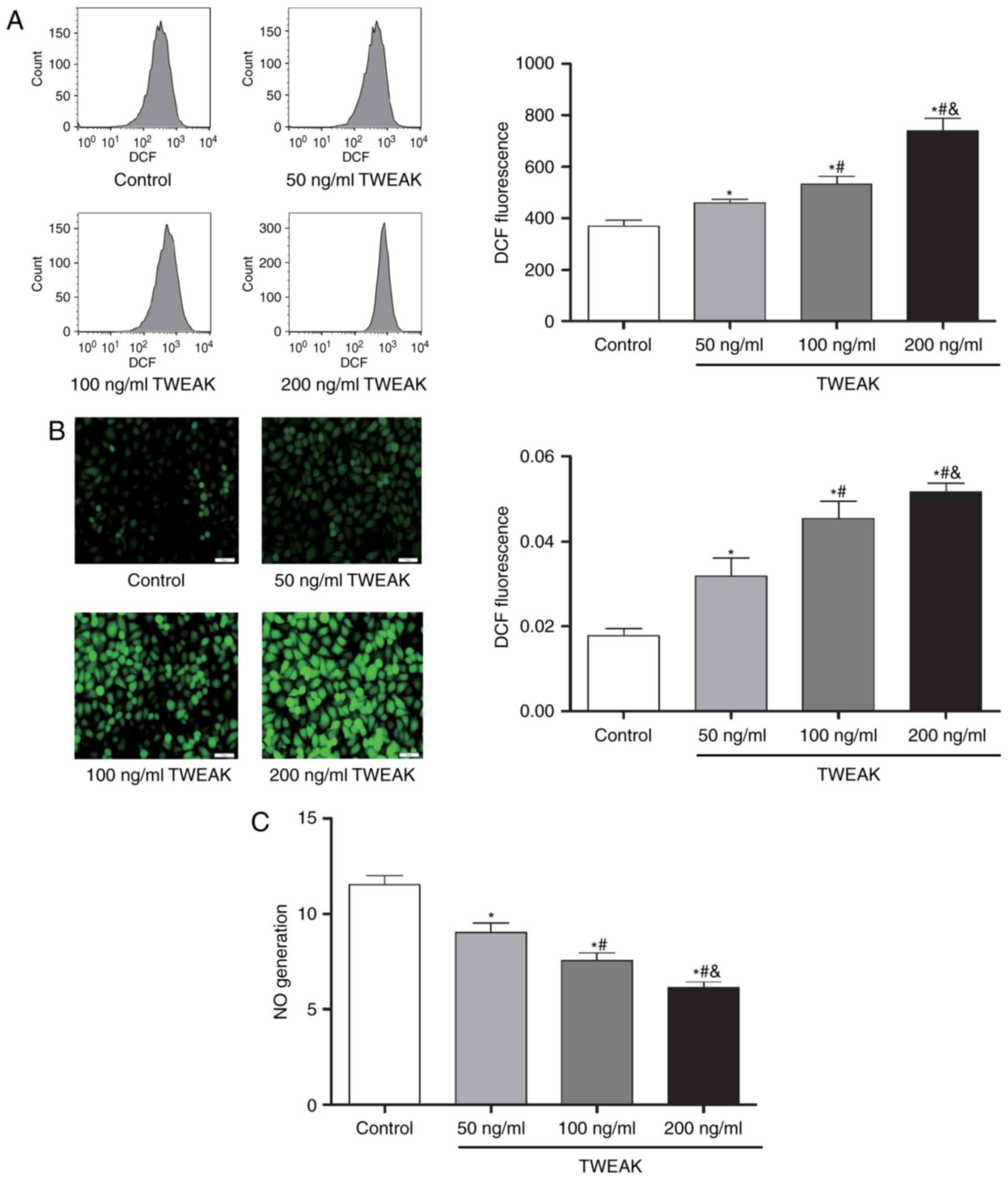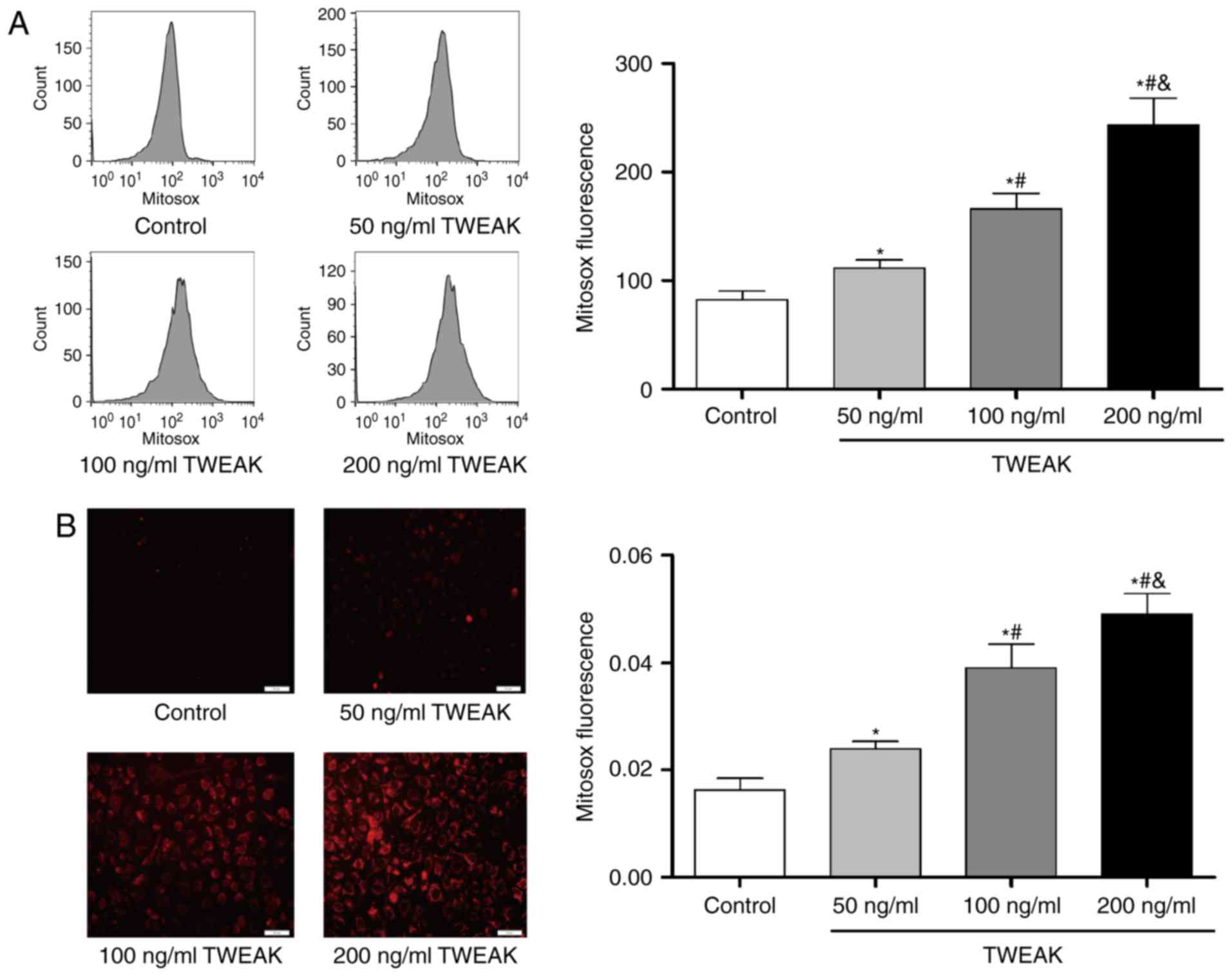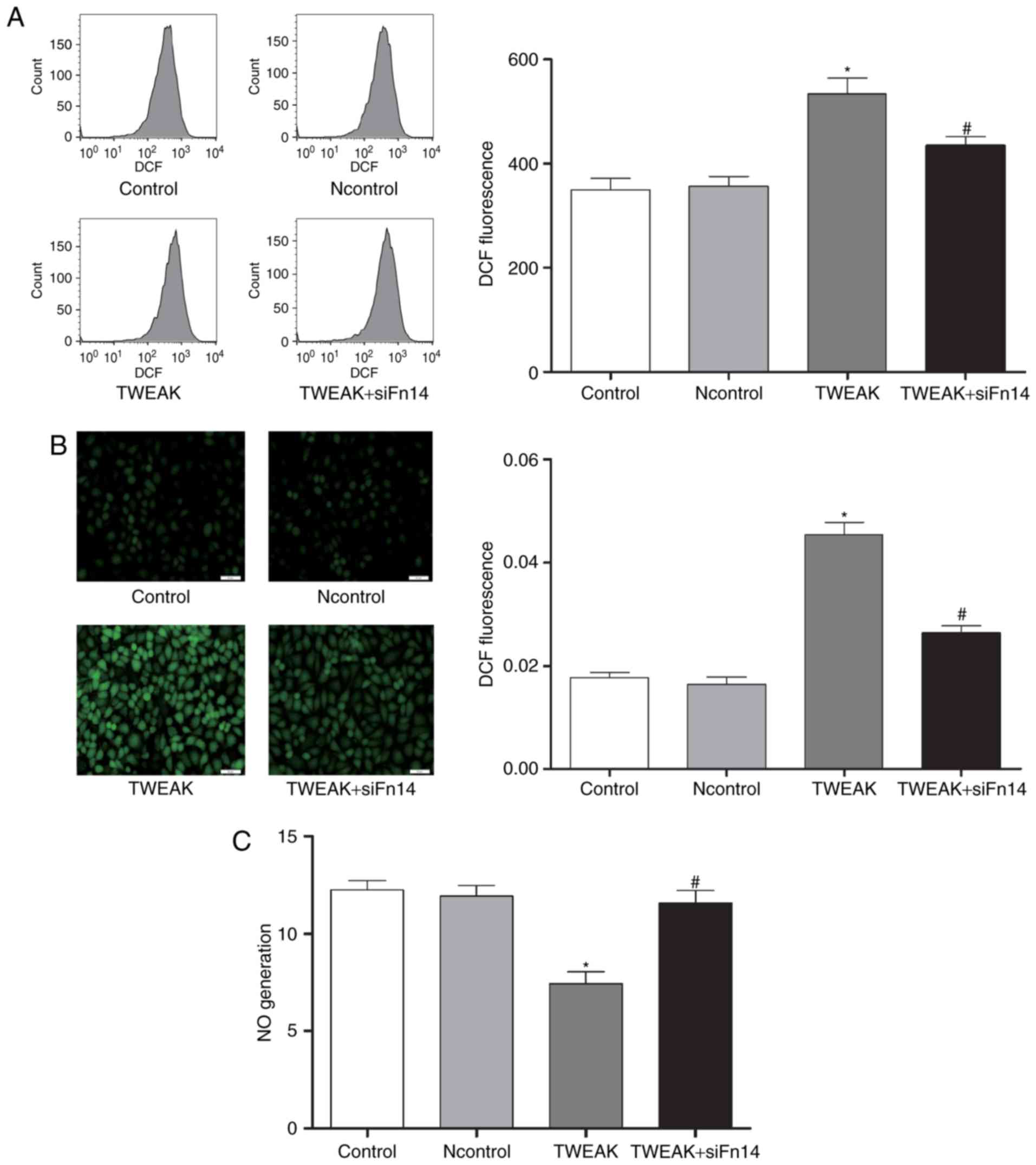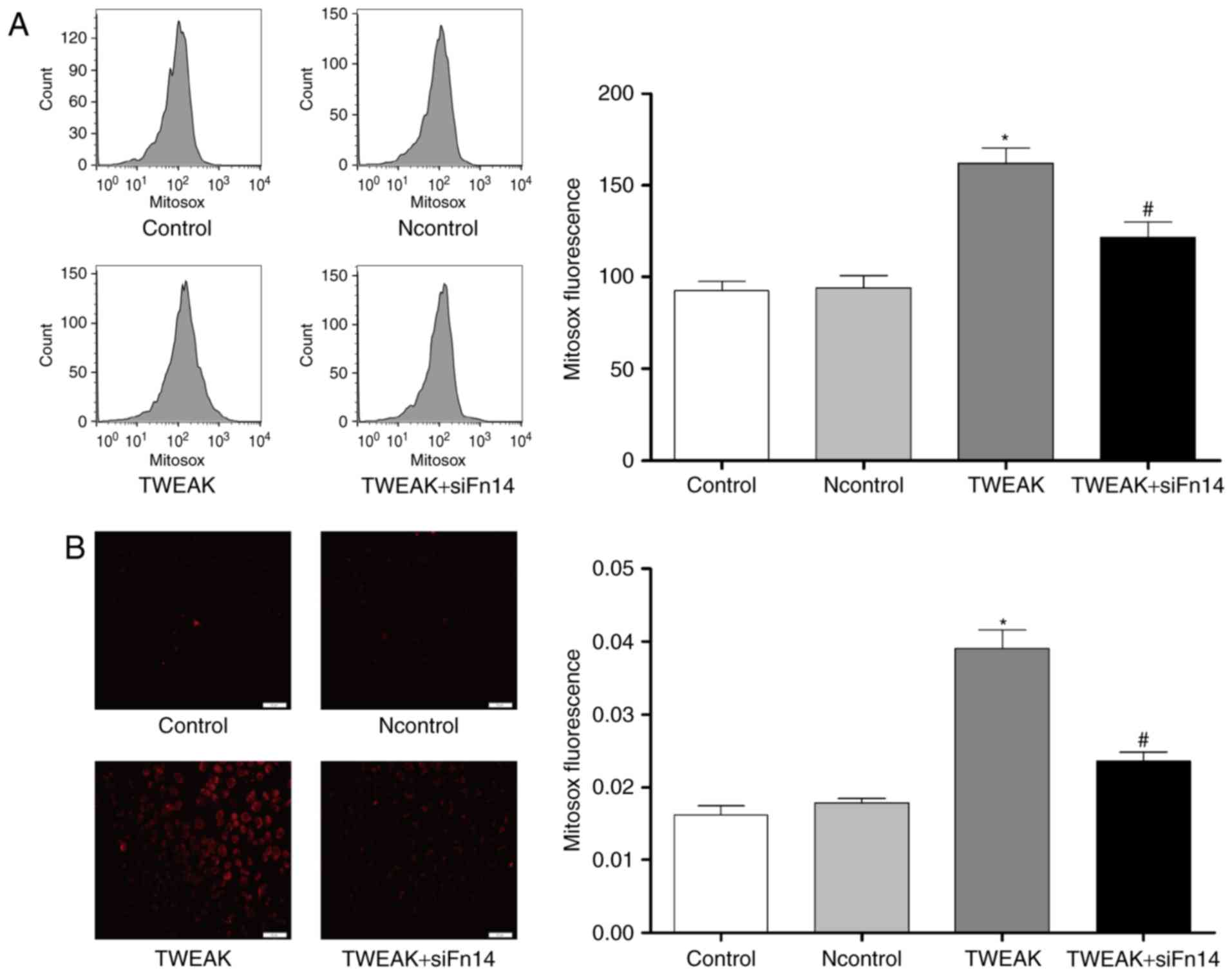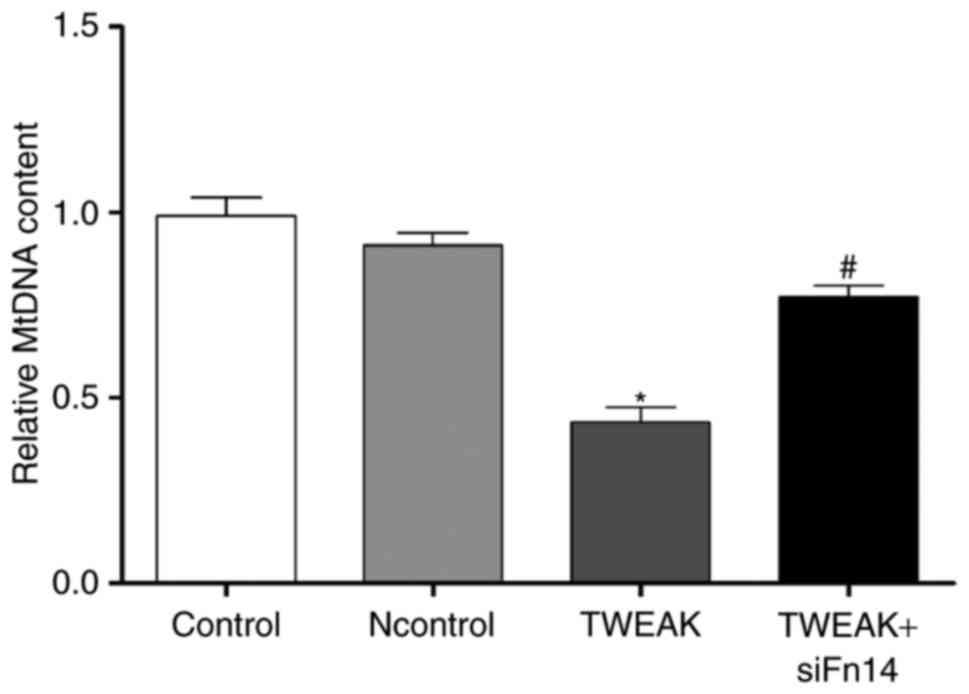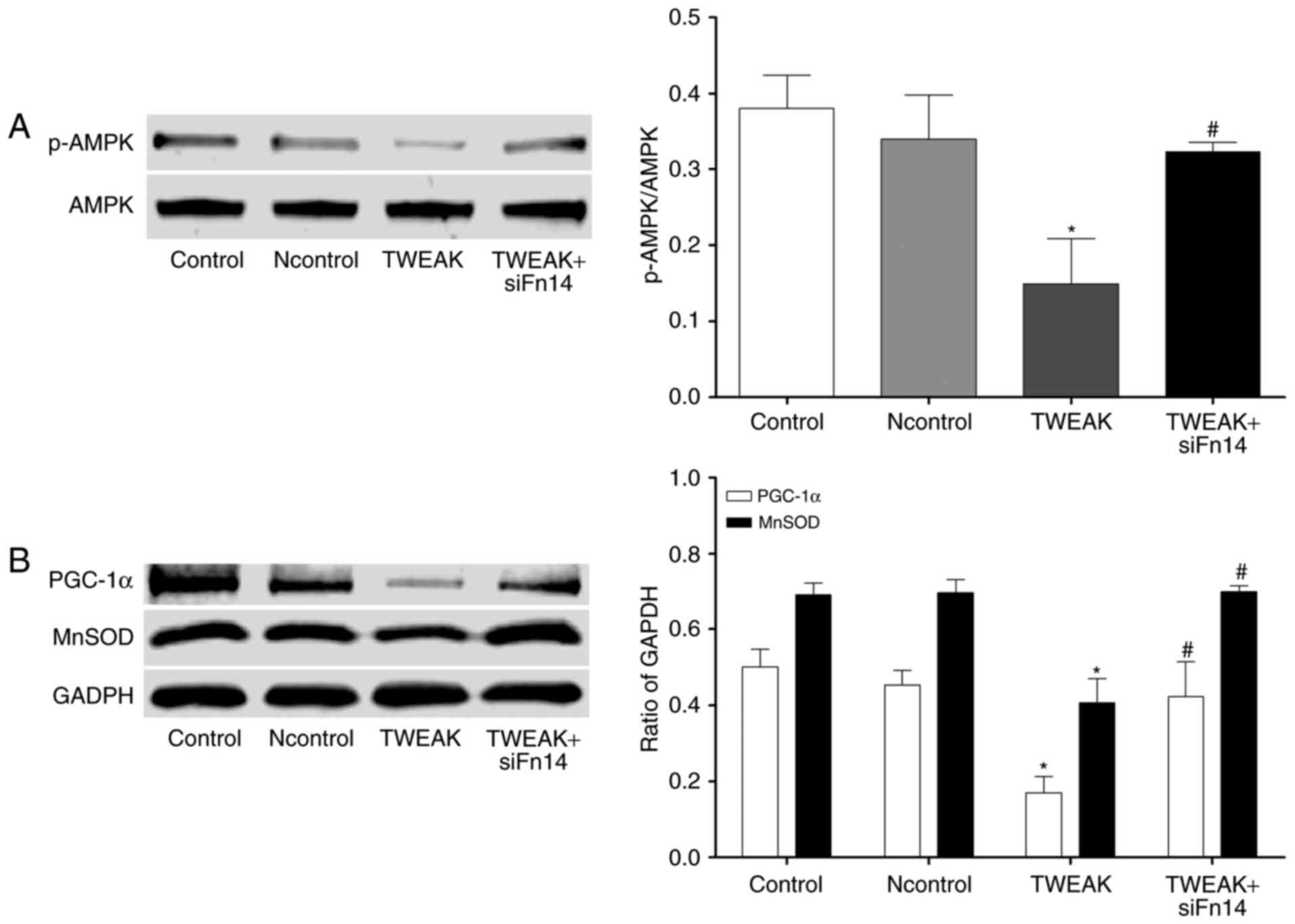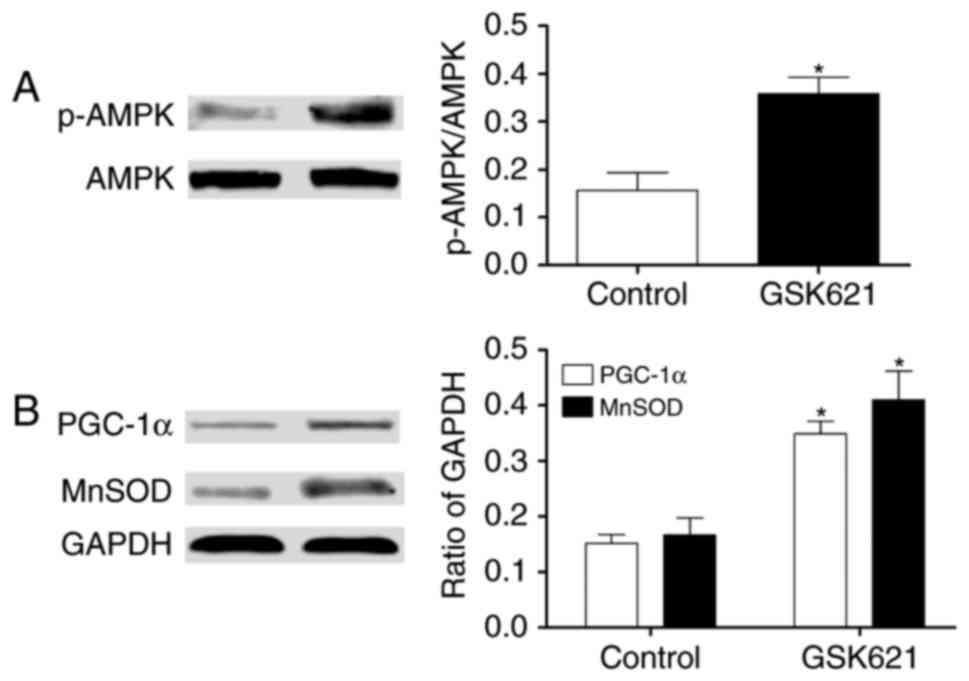|
1
|
Ross R: Atherosclerosis-an inflammatory
disease. N Engl J Med. 340:115–126. 1999. View Article : Google Scholar
|
|
2
|
Burkly LC, Michaelson JS, Hahm K,
Jakubowski A and Zheng TS: TWEAKing tissue remodeling by a
multifunctional cytokine: Role of TWEAK/Fn14 pathway in health and
disease. Cytokine. 40:1–16. 2007. View Article : Google Scholar
|
|
3
|
Blanco-Colio LM, Martin-Ventura JL,
Munoz-Garcia B, Moreno JA, Meilhac O, Ortiz A and Egido J: TWEAK
and Fn14. New players in the pathogenesis of atherosclerosis. Front
Biosci. 12:3648–3655. 2007. View
Article : Google Scholar
|
|
4
|
Muñoz-García B, Madrigal-Matute J, Moreno
JA, Martin-Ventura JL, López-Franco O, Sastre C, Ortega L, Burkly
LC, Egido J and Blanco-Colio LM: TWEAK-Fn14 interaction enhances
plasminogen activator inhibitor 1 and tissue factor expression in
atherosclerotic plaques and in cultured vascular smooth muscle
cells. Cardiovasc Res. 89:225–233. 2011. View Article : Google Scholar
|
|
5
|
Kim SH, Kang YJ, Kim WJ, Woo DK, Lee Y,
Kim DI, Park YB, Kwon BS, Park JE and Lee WH: TWEAK can induce
pro-inflammatory cytokines and matrix metalloproteinase-9 in
macrophages. Circ J. 68:396–399. 2004. View Article : Google Scholar
|
|
6
|
Schapira K, Burkly LC, Zheng TS, Wu P,
Groeneweg M, Rousch M, Kockx MM, Daemen MJ and Heeneman S: Fn14-Fc
fusion protein regulates atherosclerosis in ApoE−/− mice and
inhibits macrophage lipid uptake in vitro. Arterioscler Thromb Vasc
Biol. 29:2021–2027. 2009. View Article : Google Scholar
|
|
7
|
Sastre C, Fernández-Laso V,
Madrigal-Matute J, Muñoz-García B, Moreno JA, Pastor-Vargas C,
Llamas-Granda P, Burkly LC, Egido J, Martín-Ventura JL and
Blanco-Colio LM: Genetic deletion or TWEAK blocking antibody
administration reduce atherosclerosis and enhance plaque stability
in mice. J Cell Mol Med. 18:721–734. 2014. View Article : Google Scholar :
|
|
8
|
Lüscher TF and Barton M: Biology of the
endothelium. Clin Cardiol. 20 11 Suppl 2:(II): 3–10. 1997.
|
|
9
|
Münzel T, Gori T, Bruno RM and Taddei S:
Is oxidative stress a therapeutic target in cardiovascular disease?
Eur Heart J. 31:2741–2748. 2010. View Article : Google Scholar
|
|
10
|
Victor VM, Apostolova N, Herance R,
Hernandez-Mijares A and Rocha M: Oxidative stress and mitochondrial
dysfunction in atherosclerosis: Mitochondria-targeted antioxidants
as potential therapy. Curr Med Chem. 16:4654–4667. 2009. View Article : Google Scholar
|
|
11
|
Lane RK, Hilsabeck T and Rea SL: The role
of mitochondrial dysfunction in age-related diseases. Biochim
Biophys Acta. 1847:1387–1400. 2015. View Article : Google Scholar
|
|
12
|
Kadlec AO, Chabowski DS, Ait-Aissa K and
Gutterman DD: Role of PGC-1α in vascular regulation: Implications
for atherosclerosis. Arterioscler Thromb Vasc Biol. 36:1467–1474.
2016. View Article : Google Scholar :
|
|
13
|
Valle I, Alvarez-Barrientos A, Arza E,
Lamas S and Monsalve M: PGC-1alpha regulates the mitochondrial
antioxidant defense system in vascular endothelial cells.
Cardiovasc Res. 66:562–573. 2005. View Article : Google Scholar
|
|
14
|
Kahn BB, Alquier T, Carling D and Hardie
DG: AMP-activated protein kinase: Ancient energy gauge provides
clues to modern understanding of metabolism. Cell Metab. 1:15–25.
2005. View Article : Google Scholar
|
|
15
|
Ruiz-Andres O, Suarez-Alvarez B,
Sánchez-Ramos C, Monsalve M, Sanchez-Niño MD, Ruiz-Ortega M, Egido
J, Ortiz A and Sanz AB: The inflammatory cytokine TWEAK decreases
PGC-1α expression and mitochondrial function in acute kidney
injury. Kidney Int. 89:399–410. 2016. View Article : Google Scholar
|
|
16
|
Harada N, Nakayama M, Nakano H, Fukuchi Y,
Yagita H and Okumura K: Pro-inflammatory effect of TWEAK/Fn14
interaction on human umbilical vein endothelial cells. Biochem
Biophys Res Commun. 299:488–493. 2002. View Article : Google Scholar
|
|
17
|
Zhang F, Zhang M, Wang A, Xu M, Wang C, Xu
G, Zhang B, Zou X and Zhuge Y: TWEAK increases SIRT1 expression and
promotes p53 deacetylation affecting human hepatic stellate cell
senescence. Cell Biol Int. 41:147–154. 2017. View Article : Google Scholar
|
|
18
|
Wu YH, Li Q, Li P and Liu B: GSK621
activates AMPK signaling to inhibit LPS-induced TNFα production.
Biochem Biophys Res Commun. 480:289–295. 2016. View Article : Google Scholar
|
|
19
|
Chen L, Chen Q, Deng G, Kuang S, Lian J,
Wang M and Zhu H: AMPK activation by GSK621 inhibits human melanoma
cells in vitro and in vivo. Biochem Biophys Res Commun.
480:515–521. 2016. View Article : Google Scholar
|
|
20
|
Ballinger SW, Van Houten B, Jin GF,
Conklin CA and Godley BF: Hydrogen peroxide causes significant
mitochondrial DNA damage in human RPE cells. Exp Eye Res.
68:765–772. 1999. View Article : Google Scholar
|
|
21
|
Handschin C, Rhee J, Lin J, Tarr PT and
Spiegelman BM: An autoregulatory loop controls peroxisome
proliferator-activated receptor gamma coactivator 1alpha expression
in muscle. Proc Natl Acad Sci USA. 100:7111–7116. 2003. View Article : Google Scholar :
|
|
22
|
Münzel T, Sinning C, Post F, Warnholtz A
and Schulz E: Pathophysiology, diagnosis and prognostic
implications of endothelial dysfunction. Ann Med. 40:180–196. 2008.
View Article : Google Scholar
|
|
23
|
Davignon J and Ganz P: Role of endothelial
dysfunction in atherosclerosis. Circulation. 109 23 Suppl
1:III27–III32. 2004. View Article : Google Scholar
|
|
24
|
Madrigal-Matute J, Fernandez-Laso V,
Sastre C, Llamas-Granda P, Egido J, Martin-Ventura JL, Zalba G and
Blanco-Colio LM: TWEAK/Fn14 interaction promotes oxidative stress
through NADPH oxidase activation in macrophages. Cardiovasc Res.
108:139–147. 2015. View Article : Google Scholar
|
|
25
|
Dikalov S: Cross talk between mitochondria
and NADPH oxidases. Free Radic Biol Med. 51:1289–1301. 2011.
View Article : Google Scholar :
|
|
26
|
Madamanchi NR and Runge MS: Mitochondrial
dysfunction in atherosclerosis. Circ Res. 100:460–473. 2007.
View Article : Google Scholar
|
|
27
|
Krzywanski DM, Moellering DR, Westbrook
DG, Dunham-Snary KJ, Brown J, Bray AW, Feeley KP, Sammy MJ, Smith
MR, Schurr TG, et al: Endothelial cell bioenergetics and
mitochondrial DNA damage differ in humans having African or West
Eurasian maternal ancestry. Circ Cardiovasc Genet. 9:26–36. 2016.
View Article : Google Scholar :
|
|
28
|
Panth N, Paudel KR and Parajuli K:
Reactive oxygen species: A key hallmark of cardiovascular disease.
Adv Med. 2016:91527322016. View Article : Google Scholar :
|
|
29
|
Yu EP and Bennett MR: The role of
mitochondrial DNA damage in the development of atherosclerosis.
Free Radic Biol Med. 100:223–230. 2016. View Article : Google Scholar
|
|
30
|
Shi J, Jiang B, Qiu Y, Guan J, Jain M, Cao
X, Bauer M, Su L, Burkly LC, Leone TC, et al: PGC1α plays a
critical role in TWEAK-induced cardiac dysfunction. PLoS One.
8:e540542013. View Article : Google Scholar :
|
|
31
|
Hindi SM, Mishra V, Bhatnagar S, Tajrishi
MM, Ogura Y, Yan Z, Burkly LC, Zheng TS and Kumar A: Regulatory
circuitry of TWEAK-Fn14 system and PGC-1α in skeletal muscle
atrophy program. FASEB J. 28:1398–1411. 2014. View Article : Google Scholar :
|
|
32
|
Macmillan-Crow LA and Cruthirds DL:
Invited review: Manganese superoxide dismutase in disease. Free
Radic Res. 34:325–336. 2001. View Article : Google Scholar
|
|
33
|
Bresciani G, da Cruz IB and
González-Gallego J: Manganese superoxide dismutase and oxidative
stress modulation. Adv Clin Chem. 68:87–130. 2015. View Article : Google Scholar
|















